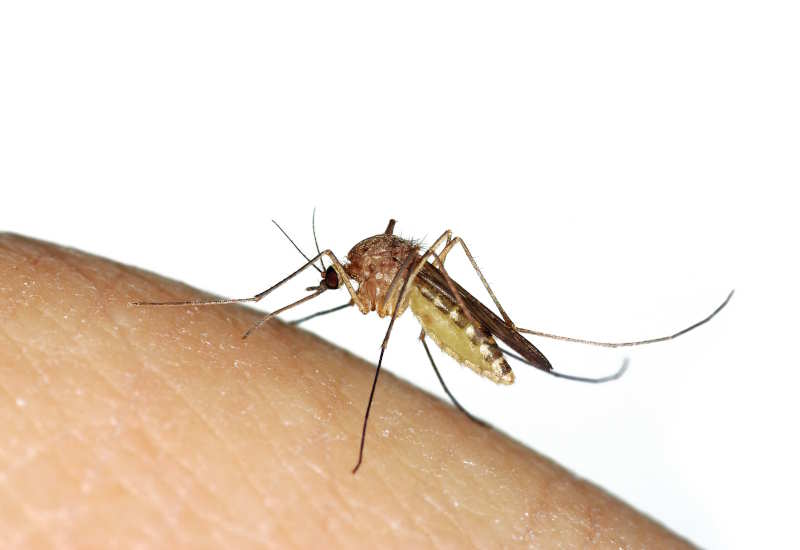
DRIVE

Description
- Programme: EUREKA Eurostars
- Funding amount: €2 million, of which €150,000 is allocated to Bavaria
- Funding period: 12/2018-11/2021
- Coordinator: Saiba Biotech GmbH, Switzerland
EU Project DRIVE: Radical innovation in vaccine development
With 96 million affected every year, dengue fever is the most common viral disease in the world transmitted by mosquitos. The number of new cases has more than sextupled between 1990 and 2015 according to information from the World Health Organisation (WHO), and there is currently no effective vaccine available. The Eurostars project DRIVE is developing a radically innovative toolbox for developing new vaccines and has selected dengue fever as proof of concept to deliver a first effective vaccine candidate.
The process of developing a dengue fever vaccine is highly complex, which is why there has been no success as yet. There are four different types of the dengue virus (serotype 1, 2, 4, 5) and there is only a cross-immunity of just a few weeks to months after overcoming an infection. After this, it is possible to become infected with dengue fever by another serotype. The problem: The antibodies created for one serotype can enhance the infection of another serotype. This often means that a second dengue fever infection is more serious than the first. Because the body also creates antibodies after a vaccination, this leads to serious complications in the case of dengue fever. A vaccine campaign with the only yet approved vaccine was cancelled in 2017 for this reason due to cases of death. Highly complex, infectious diseases like dengue fever require new preclinical approaches for developing vaccines successfully in order to reduce the currently high failure rate in clinical studies. DRIVE (Delivering a Radical Innovation in Vaccine Development, project number 12504) seeks to develop a marketable vaccine development toolbox for the production of a radically innovative vaccine. This toolbox contains an innovative platform for vaccine design based on the virus particle technology, which means particles that are structurally and immunologically similar to the virus, but not infectious. It also includes a package of preclinical validation studies, which are studies intended to provide evidence of practical suitability. In these studies, researchers identify a broad spectrum of possible immune responses with the help of new technologies. New bioinformatic methods as well as artificial intelligence based on machine learning use the identified spectrum of immune-cell responses in order to improve the vaccine. This should considerably increase the success rate when developing vaccines against highly complex infectious diseases, thus significantly reducing the development costs of vaccines. As proof of concept, DRIVE is seeking to design a vaccine candidate that will provide immunisation against all four serotypes of dengue and that has an excellent chance of becoming part of a clinical study. The new vaccine development toolbox can also be used to develop additional vaccines against other highly complex infectious diseases. The University of Veterinary Medicine Hannover (TiHo) and three SMEs: Saiba Biotech GmbH (Switzerland), Artemis One Health (Netherlands), and Biomax Informatics AG (Bavaria/Germany) are involved in the EU project DRIVE.
Comments on BayFOR’s contribution:

“BayFOR advised Biomax on matters relating to both the formal requirements in the Eurostar application phase as well as to content improvement. The many years of active and committed support by BayFOR has already helped us several times in exciting projects.”
Dr. Dieter Maier
Biomax Informatics AG
Director Project Management
Robert-Koch-Str. 2
82152 Planegg
Tel: +49 89 89 55 74 - 826
E-Mail: dieter.maier@no-spam-pleasebiomax.com




